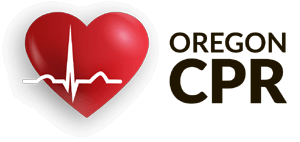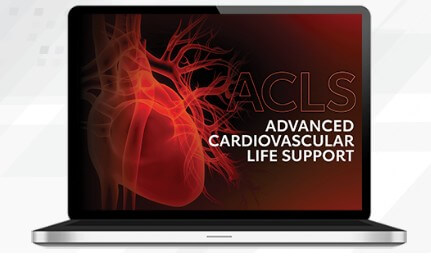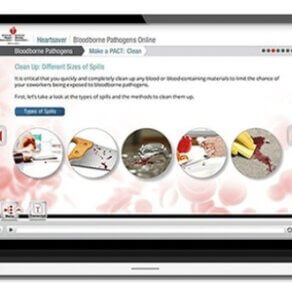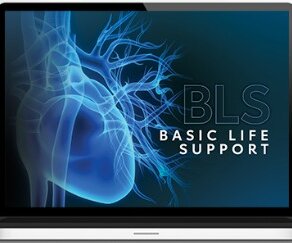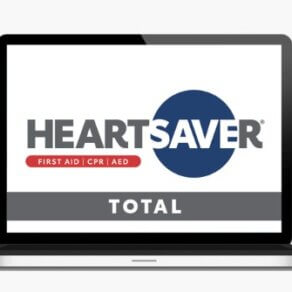Description
HeartCode® ACLS Online is a self-directed, comprehensive eLearning program that uses adaptive learning technology to allow learners to acquire and demonstrate Advanced Cardiac Life Support skills using a personalized learning path that adapts in real time to a learner’s performance. You are purchasing access to the American Heart Association’s online HeartCode® ACLS training through Oregon CPR! After purchase here, we will supply a link that will allow you to complete the online portion of the HeartCode® ACLS training. Skills assessment must be purchased separately and completed within 90 days of the online course.. Browse the schedule for HeartCode® ACLS skills assessments here.
Get ACLS Certified Online with the AHA’s HeartCode® Program
- Online instruction
- 4-hour course
- Requires hands-on skills test
- 2-3 CE hours
- Course Code 20-3554
How Does this Course Work?
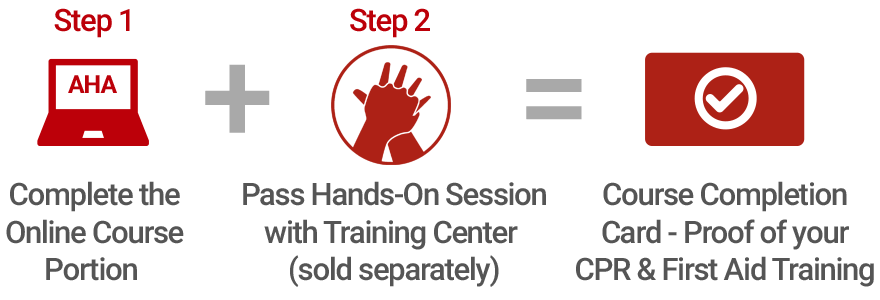
HeartCode® ACLS Online is the cognitive portion of training, completed online. A separate psychomotor skills assessment using voice assisted manikins with real-time audio and visual feedback or a skills assessment with an AHA Instructor is required to earn a valid AHA ACLS Provider eCard, valid for two years.
If you would prefer to schedule in-person ACLS training with Oregon CPR, click here to find an upcoming class.
Who Should Take this Course?
Healthcare professionals and other personnel who need to know how to perform CPR and other advanced cardiovascular life support skills in a wide variety of in hospital and pre-hospital settings. The HeartCode® training option allows professionals who cannot readily attend an in-person ACLS course, typically given over two days, an opportunity to get ACLS certification at their own pace. HeartCode® still requires purchasing and completing a separate skills assessment. Click here to schedule your skills assessment once you’ve completed the online portion.
Hands-On Session (Sold Separately)
A separate psychomotor skills assessment using voice assisted manikins with real-time audio and visual feedback or a skills assessment with an AHA Instructor is required to earn a valid AHA ACLS Provider eCard that is valid for two years. Click here to schedule your skills assessment once you’ve completed the online portion.
What Does this Course Teach?
Topics covered in this course include:
- Systems of care
- How the use of a rapid response team (RRT) or medical emergency team (MET) may improve patient outcomes
- The impact of team dynamics on overall team performance
- Effective communication as a member or leader of a high-performance team
- Prompt, high-quality BLS, including prioritizing early chest compressions and integrating early AED use
- The BLS, Primary, and Secondary Assessment sequences for a systematic evaluation of adult patients
- Early recognition and management of acute coronary syndromes, including appropriate disposition
- Early recognition and management of stroke, including appropriate disposition
- Recognition and early management of respiratory arrest
- Recognition and early management of bradycardia that may result in cardiac arrest or complicate resuscitation outcome
- Recognition and early management of tachycardia that may result in cardiac arrest or complicate resuscitation outcome
- Recognition and early management of cardiac arrest until termination of resuscitation or transfer of care, including immediate post-cardiac arrest care
- Evaluation of resuscitative efforts during a cardiac arrest through continuous assessment of CPR quality, monitoring the patient’s physiologic response, and delivering real-time feedback to the team
